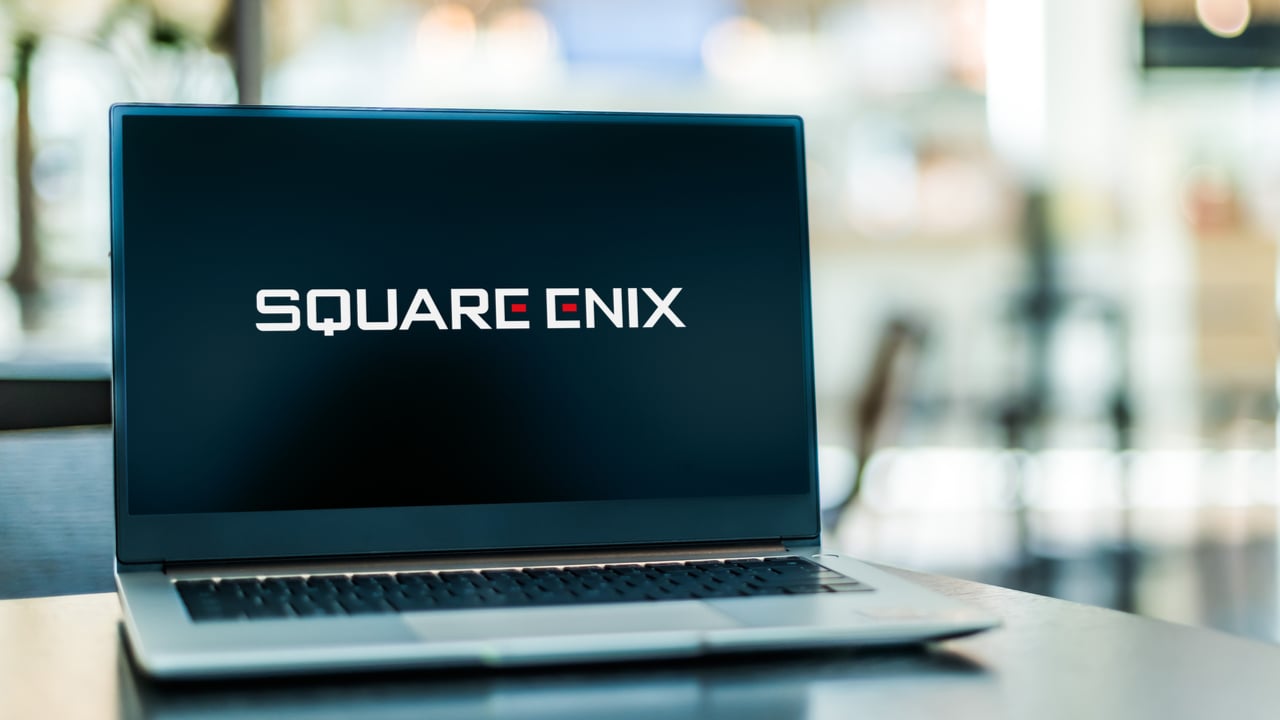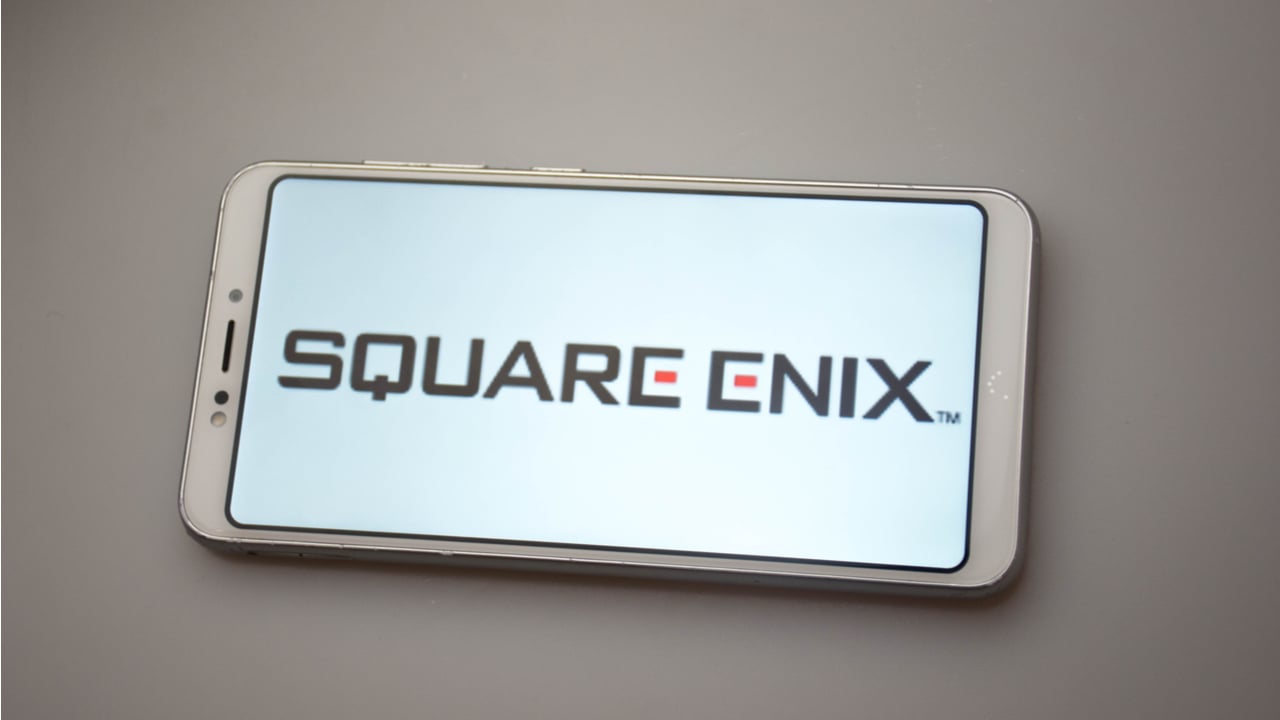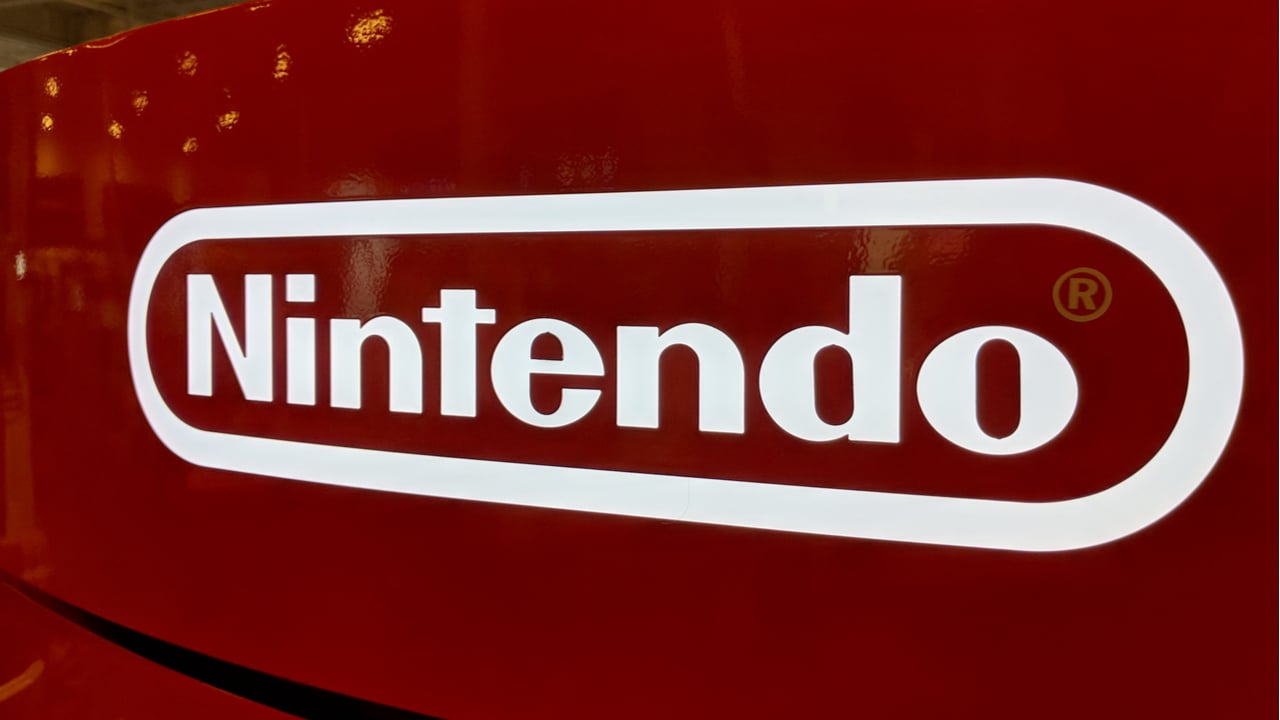
An altcoin fueling a play-to-earn metaverse game is seeing green after being added to the US’s largest crypto exchange. In a new announcement, Coinbase says The Sandbox (SAND) will start trading on Coinbase Pro paired with Tether (USDT) once appropriate liquidity conditions are met. Coinbase will add support for The Sandbox (SAND). Inbound transfers for […]
The post Ethereum-Based Gaming Project Rallies After Coinbase Announces Surprise Altcoin Listing appeared first on The Daily Hodl.

Yield Guild Games has had a very strong start to 2022 despite crypto markets falling steadily throughout the first three months of the year.
Yield Guild Games (YGG) has released its Community Update for Q1 2022, revealing that total scholarships rose 39% overall as the guild continues to farm copious amounts of the Axie breeding Smooth Love Potion (SLP) token.
The Community Report shows that the month-on-month growth of scholarships in YGG has been strong despite a downturn in the market. January saw 50.13% growth, February saw a 28.8% increase, while March had 41.93% growth fueled by new partnerships and the rollout of SubDAOs. By the end of March, the guild had 29,458 scholarships, mostly from Axie Infinity.
SubDAOs are decentralized autonomous organizations (DAO) specialized for particular geographic regions. There are currently three SubDAOs in Southeast Asia, India, and Latin America.
YGG is a gaming guild that pools together gamers from across the play-to-earn (P2E) space in order to generate revenue for the community and teach newcomers how to be successful through a scholarship program. The guild generates revenue from staked YGG tokens and scholarships. Nonfungible token (NFT) game Axie Infinity accounts for the majority of scholarships across all of YGG’s 12 partner games.
To date, the guild has farmed 195 million SLP worth about $1.1 million at the time of writing, according to CoinGecko. SLP is a token used to breed Axies, which is one of the major activities for scholars. The report states that with 25.86 million SLP farmed, February was the most profitable month since it began last April.
Prices across the crypto markets have been down through 2022, as illustrated by the 44% drop in market cap since Jan. 1. However, blockchain gamers have not put down their controllers. Data from decentralized application (DApp) tracker DappRadar shows that user numbers have remained fairly stable at about 1.1 million daily gamers since the beginning of the year.
Related: Web3, NFTs, Metaverse: The tools for a truly decentralized future
Yield Guild Games spent $2.5 million on new partnerships through Q1. 63% of those funds went to P2E game partnerships, while 23% went to guild partnerships. The remaining 14% went to infrastructure and platform support to expand the P2E ecosystem.
The future of NFT gaming looks promising based on the growth rate of YGG and the amount of funding going toward new game development. Since April 25, nearly $400 million has gone to fund early-stage NFT games, according to data from investment tracker Airtable.
YGG is the native token for Yield Guild Games. It is down 12.3% over the past 24 hours and trading at $0.72, according to CoinGecko. Additionally, YGG is down 93.6% from its Nov. 20 all-time high.

A new survey has revealed that blockchain technology may be a better fitness motivator than traditional monetary incentives.
A new survey has found that over 80% of people would be motivated to take up more physical exercise if they were paid in cryptocurrency for their efforts.
The survey, which was conducted by fitness website FitRated, asked 1,001 Americans for their thoughts on blockchain-related fitness technology.
The survey found that a staggering 40% of people would be willing to cancel their current physical gym membership for one in the Metaverse and that 81% of respondents would be more motivated to stay fit if they were incentivized by cryptocurrency payments.
Previously, a study conducted by the National Bureau of Economic Research concluded that money alone would not be enough to motivate people to go to the gym. However, according to FitRated’s research, blockchain-based financial incentives might just do the trick, with 63% of people agreeing that fitness motivation was a “primary benefit” of blockchain technology. Several move-to-earn projects are trying to capitalize on this.
The concept of “gamification” was found to be the primary reason behind why people may prefer blockchain-based financial incentives to standard monetary ones, with 83% of respondents saying that they liked the fact that blockchain-based fitness applications gamified physical activity.
When asked what types of fitness they would undertake to earn crypto, 49.1% of respondents said that walking would be the activity of choice. This was closely followed by cycling at 47.2% and swimming came in third at 41.4%.
When it came to looking at what cryptocurrency people wanted to be paid in, Bitcoin (BTC) was overwhelmingly the preferred choice, with 72% of respondents opting for BTC. Ethereum (ETH) was a distant second at 35.5%, followed closely by Dogecoin (DOGE) at 34.6%.
Blockchain-based fitness apps are currently on the rise. A Web3 move-to-earn application called STEPN — which gamifies the experience of running by providing users the ability to mint unique NFT shoes — has been a pioneer in the blockchain fitness space.
While STEPN may be one of the more well-established Web3 applications in the fitness world, it certainly isn’t alone. Another move-to-earn app called Step App, which runs on the Avalanche blockchain, emerged as a competitor, signaling the push of Web3 companies looking to tap into the $100 billion fitness industry.
 Metatheory, a Web3 gaming company founded in 2021, has announced it has raised $24 million in a Series A funding round. The investment round, which was led by big VC names in the crypto space like a16z, also had the participation of Pantera Capital and FTX Ventures. Kevin Lin, CEO of the company and co-founder […]
Metatheory, a Web3 gaming company founded in 2021, has announced it has raised $24 million in a Series A funding round. The investment round, which was led by big VC names in the crypto space like a16z, also had the participation of Pantera Capital and FTX Ventures. Kevin Lin, CEO of the company and co-founder […] Square Enix has announced its new mid-term business plan, reinforcing its blockchain pivot according to the documents presented. The company will continue to invest in key companies in the blockchain arena, including Animoca Brands and The Sandbox, and will also consider other investments in the area. Square Enix recently sold its Western studios for $300 […]
Square Enix has announced its new mid-term business plan, reinforcing its blockchain pivot according to the documents presented. The company will continue to invest in key companies in the blockchain arena, including Animoca Brands and The Sandbox, and will also consider other investments in the area. Square Enix recently sold its Western studios for $300 […]
The funding round led by Web3-focused venture capital firms will be used for upcoming nonfungible tokens, comics and a play-to-earn game slated for late 2022.
Web3 gaming and entertainment company Metatheory founded by Twitch co-founder Kevin Lin has raised $24 million in a Series A funding round on Monday.
The round was led by crypto capital venture firm Andreessen Horowitz (a16z), with participation from Pantera Capital, the venture arm of the FTX cryptocurrency exchange, FTX Ventures, and other venture firms, according to the announcement.
Metatheory was launched in November 2021 around one year after Lin left Twitch, where he wrote in a Medium article at the time that he was creating the gaming company and also a blockchain game called DuskBreakers. Lin was quoted in this week’s announcement as saying:
“Building immersive digital experiences has always been a passion of mine, and after stepping away from Twitch to explore what’s next in the industry, I truly believe blockchain will open the door to even more possibilities and have a major impact in the gaming, storytelling and community building space.”
ICYMI: Today we're excited to announce a $24M Series A Round in Metatheory, our parent company.
— DuskBreakers (@DuskBreakers) May 16, 2022
A big TY to: @a16z@PanteraCapital@FTX_Official
Breyer Capital @jimihendrixlive@MeritCircle_IO@Globalcoinrsrch@Sfermion_@daedalus_angels@dragonfly_cap@rechargecapital
DuskBreakers was released in December 2021 with the art designed by the former lead illustrator at Twitch. The Ethereum-based game implemented a “play-to-mint” model for its first 10,000 nonfungible tokens (NFTs). Those looking to grab an NFT have to play an arcade-type game to validate their entry onto a whitelist.
The DuskBreakers team plans to release comics and animations to continue its storyline, andditional NFTs and content are in the works at Metatheory with a play-to-earn game set for launch in the fourth quarter of 2022.
Related: How blockchain games create entire economies on top of their gameplay: Report
Lin is not the only Twitch co-founder with an interest in gaming NFTs. In December 2021 Justin Kan, another co-founder of Twitch, launched the Fractal NFT marketplace which focuses on blockchain gaming tokens saying that “NFTs are the future of gaming.”
Blockchain gaming is gaining interest from titans of the traditional gaming industry. Most recently, Square Enix revealed in its earnings report that it will expand NFTs into more of its games in 2022.
Microsoft’s CEO said the development of metaverse platforms was a key reason for the $69 billion acquisition of gaming giant Activision Blizzard and Sega is looking to integrate cloud technology NFTs as part of its new Super Game project, which connects its different games to each other.
 Square Enix, the influential Japanese gaming and publishing company, has sold its Western studios and some of its Western intellectual properties (IPs) to Embracer Group. The deal, which values these properties at $300 million, will allow the company to focus on the development of new businesses more aligned with the refined direction of the company, […]
Square Enix, the influential Japanese gaming and publishing company, has sold its Western studios and some of its Western intellectual properties (IPs) to Embracer Group. The deal, which values these properties at $300 million, will allow the company to focus on the development of new businesses more aligned with the refined direction of the company, […]
From ecological seafood to Bored Apes, blockchain technology is making its presence felt in homes.
Blockchain technology is familiar to cryptocurrency users and national banks, and awareness of it is spreading fast to gamers. Applications in industry, particularly supply chain management, have been appearing as well. Through them, blockchain technology may improve domestic life in unseen ways, such as ensuring high-quality food, responsibly sourced seafood, or preventing the counterfeiting of pharmaceuticals. Nonetheless, the home may be blockchain’s final frontier.
Blockchain penetration at the household level is so far quite low, but day-to-day utility was no afterthought for blockchain developers. Christoph Jentzsch, Simon Jentzsch and Stephan Tual, who in 2016 created The DAO — the short-lived first decentralized autonomous organization (DAO) — introduced Slock.it, “the first physical implementation of blockchain technology,” the same year. Slock.it technology connected devices on the Internet of Things (IoT), such as locks and payments systems, in a secure, non-intermediated manner that could be used, for example, for renting objects and property. In 2019, Slock.it was acquired by Blockchain.com, which continues to offer those services to this day.
Getting IoT devices to interact is a formidable challenge. It is being addressed on a global level, but the problem is felt in many homes, where the Amazon Alexa, Apple HomeKit, Google Assistant and Samsung SmartThings ecosystems may coexist without cooperating, along with smart devices that do not work with any of them. In an effort to make home smart technology more manageable, the Connectivity Standards Alliance, with 247 participants and 190 adopters, is creating Matter, an overarching blockchain-based connectivity protocol. Matter is expected to premiere this year, two years overdue.
Green energy is another area where blockchain can move from large-scale solutions to the household. Whygrene blockchain and cloud-based software let users create “virtual power plants” that essentially make them their own energy traders. The project is currently at the commercial pilot stage.
Whygrene is partnering with utilities and owners of solar panels, batteries and electric vehicles. Users who opt in through their electric company will be able to charge their EVs during off-peak hours of the day when energy prices are low. At peak hours, when prices are higher, they will discharge excess stored energy by selling it back to the utility.
Creator Patrick Phelps told Cointelegraph that EV drivers could potentially use Whygrene not only to cover the costs of charging their cars but even make a profit from it. Consumers would see credits or rebates in fiat currency, but behind the scenes, the system would run on a token called a CryptoJoule.
The Whygrene software could also be adapted to consumer demand response cases such as home heating and cooling, which is typically the largest household energy need. By using a home battery, the system could heat or cool the home off-peak just before the inhabitants come home from work or school. When demand spikes, it could switch off, saving the consumer money not only by conservation but also through the benefits of the virtual power plant. According to Phelps, new options will come online as battery technology improves.
Blockchain-based content delivery operators have tried to challenge traditional media with mixed success. Blockchain-based streaming platforms can claim a variety of advantages over Web2 technology, especially for music, such as a new economic model of Web3 live streaming that makes it more affordable and creators’ control over the product. Thus, Web3 is more amenable to niche markets, as it is more practical to stream smaller-scale events than before. Big-name talent and major corporations have gotten involved, too, but Web3 seems to pose little threat so far to the hegemony of cable TV and YouTube.
Unlike Matter, which would simplify the use of technology in the home, and Whygrene, which would allow users to opt in to a program run by a utility, blockchain-based entertainment requires some fluency in its technology by demanding payment in cryptocurrency or using nonfungible tokens (NFT) for ticketing or as souvenirs. Whether it will drive adoption is unclear. The emerging move-to-earn trend, based closely on the highly successful play-to-earn model and equally arcane for the non-crypto-savvy user, may hold greater evangelizing promise through the financial motivation it provides.
OliveX, a digital health and fitness company and a spinoff of games maker Animoca Brands, is an example of move-to-earn. It uses gamification, augmented reality and move-to-earn experiences to encourage exercise. Now in its alpha stage, OliveX’s Dustland Runner game is set in a dystopian future where the fate of the world depends on the main character running through a hellscape to deliver a parcel. In the real world, players are running with their smartphones in hand and headphones on. A Dustland Rider game for bicyclists is in the works as well, and there is a fitness-themed metaverse with corporate partners integrated into it.
OliveX co-founder and CEO Keith Rumjahn told Cointelegraph in a statement, “We are very excited about the upcoming iOS launch of our Dustland Runner app. We can finally demonstrate the power and potential of our game, encourage people to have fun and stay active, and incentivize players in the process.”
The game, unlike many of its competitors, requires no investment in an NFT to start playing, but it will eventually require players to own at least one of its Kettlemine NFTs to start earning. At the time of writing, a Kettlemine NTF costs a modest 0.0014 Ether (ETH), just under $4, on Animoca-owned OpenSea. Incentives are being created to encourage the purchase of more NFTs. Players receive “completion tickets” for doing their tasks, and the tickets will eventually be exchangeable for DOSE coins. “Details of the earning system will be introduced later,” the company told Cointelegraph.
Fitness enthusiasts who are lured this far into the cryptoverse can hold on to their hats as they are immersed in Operation Ape. OliveX purchased Bored Ape Yacht Club #8222, an ape known as Buster, who will become a character in Dustland. Owning an Operation Ape: Exclusive Access Pass NFT will allow players to exchange their DOSE for ApeCoin.
“By integrating Buster, another NFT project, into Dustland, we hope to foster a creative environment for players that promotes the spirit of collaboration and interoperability,” Rumjahn told Cointelegraph.
It’s what makes a house a home.

The Japanese video game publisher has already made grounds in the adoption of nonfungible tokens and expects metaverse technology to grow significantly.
In a statement published on Monday, Japanese video game publisher Square Enix announced that it would be divesting its popular Tomb Raider franchise for $300 million and investing the proceeds into blockchain, artificial intelligence (AI) and cloud computing technologies.
The principal developer of Tomb Raider is Square Enix's subsidiary Crystal Dynamics, which generated $92 million in revenue in its fiscal year ending March 2021. Aside from Tomb Raider, Crystal Dynamics and Eidos Interactive, another subsidiary to be divested, hold intellectual properties for titles such as Deus Ex, Thief and Legacy of Kain.
Shares of both companies, as well as Square Enix Montreal, will be transferred to Sweden-based Embracer Group AB. The agreement is expected to conclude between July and September of this year.
Since its inception in 1996, the Tomb Raider franchise has sold more than 88 million units. About 40% of the sales came from the franchise's rebooted trilogy consisting of Tomb Raider, Rise of the Tomb Raider and Shadows of the Tomb Raider, while the rest came from sales of the original game. Additionally, the franchise saw over 53 million paid mobile downloads from games such as Lara Croft: Relic Run.
Related: Blockchain games take on the mainstream: Here’s how they can win
Cointelegraph previously reported that Yosuke Matsuda, CEO of Square Enix, revealed plans for blockchain, metaverse and nonfungible tokens integration at the beginning of the year. Specifically, the CEO sees the development of play-to-earn blockchain games as a key pillar of growth for the industry and expects 2022 to be a year with growing hype for the metaverse.
 Reggie Fils-Aimé, the former president of Nintendo of America, has offered his take on blockchain and play to earn models when applied to the gaming industry. The executive declared that he was a big believer in blockchain technology, and that players investing their time in games should be able to monetize whatever items they had […]
Reggie Fils-Aimé, the former president of Nintendo of America, has offered his take on blockchain and play to earn models when applied to the gaming industry. The executive declared that he was a big believer in blockchain technology, and that players investing their time in games should be able to monetize whatever items they had […]